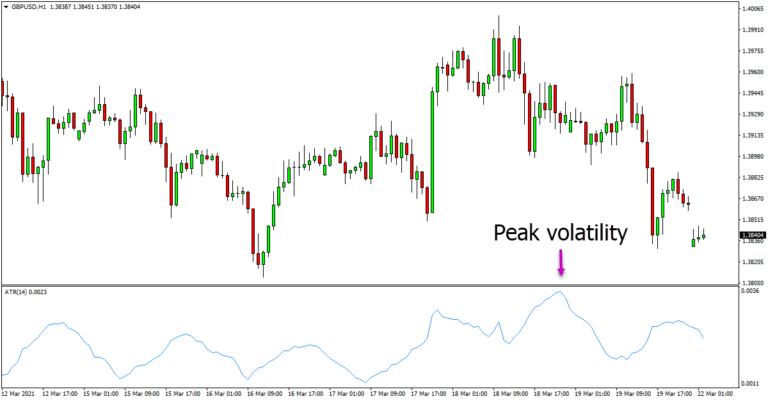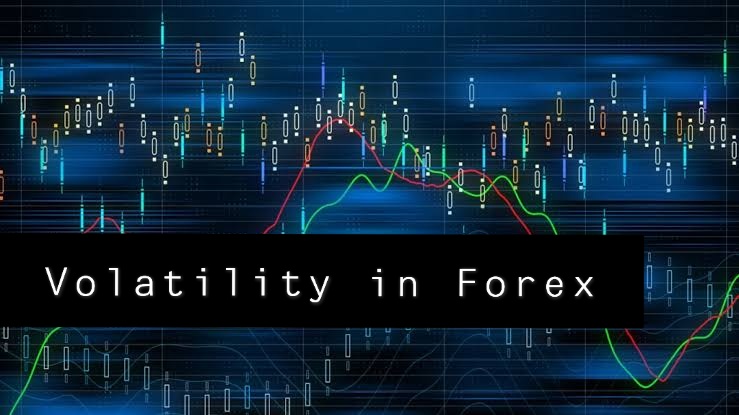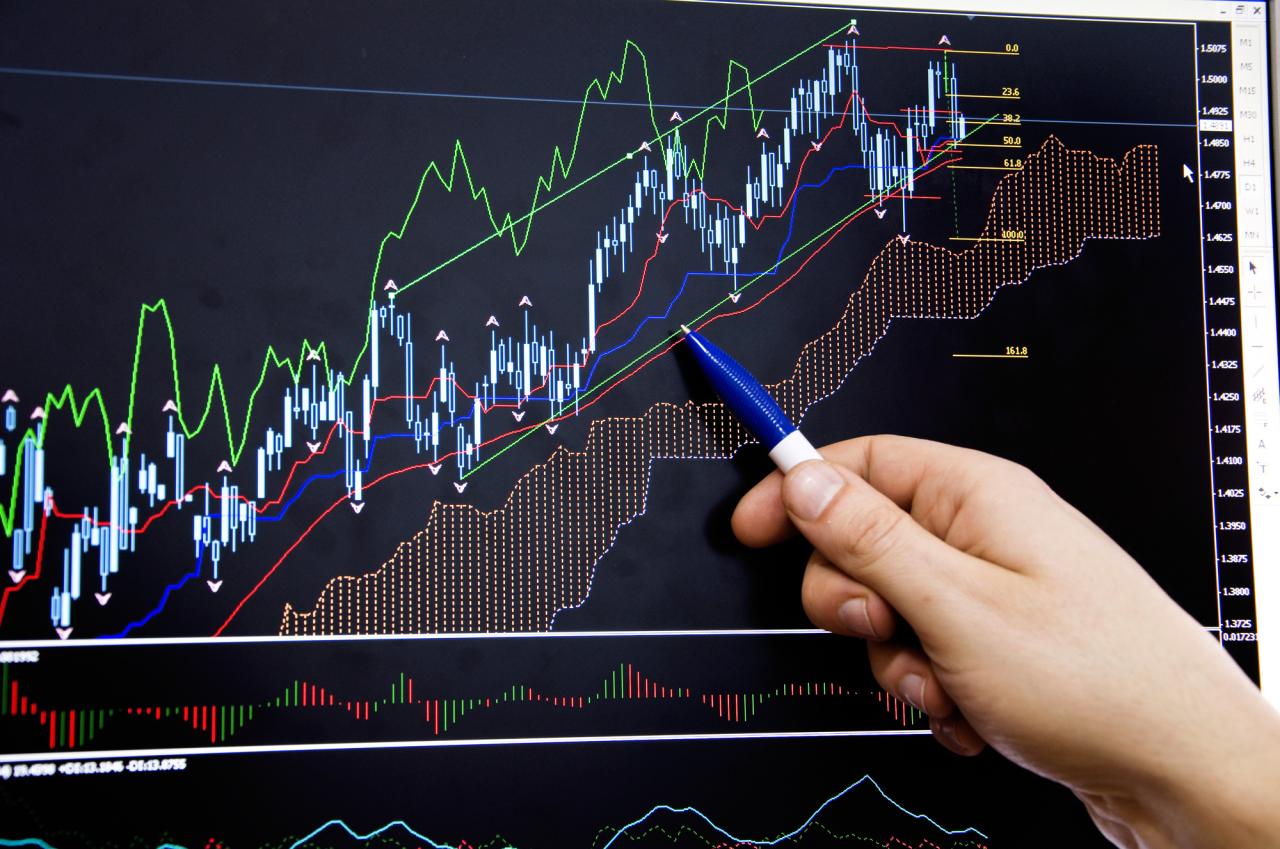Understanding Forex Market Volatility in Asia: A Comprehensive Guide

Delving into the intricacies of forex market volatility in Asia, this guide aims to provide a detailed understanding of the factors at play. From economic indicators to trading sessions, we explore how various elements contribute to the dynamic nature of the Asian forex market.
Overview of Forex Market Volatility in Asia
Forex market volatility refers to the degree of price fluctuations in currency pairs traded in the foreign exchange market. It is a measure of the uncertainty or risk associated with these price movements, which can impact trading decisions and risk management strategies.Understanding volatility in the forex market is crucial for traders and investors as it can affect the profitability of their trades.
High volatility may present opportunities for significant gains but also carries higher risks, while low volatility may result in limited trading opportunities.
Factors Contributing to Volatility in the Asian Forex Market
Various factors contribute to volatility in the Asian forex market, including:
- Geopolitical Events: Political tensions, elections, or conflicts in the region can lead to market uncertainty and increased volatility.
- Economic Data Releases: Key economic indicators such as GDP growth, inflation rates, and employment data can impact currency values and market volatility.
- Interest Rate Changes: Central bank decisions on interest rates can influence currency values and market volatility as they affect capital flows and investment decisions.
- Market Sentiment: Investor confidence, risk appetite, and market expectations can also drive volatility in the Asian forex market.
Impact of Economic Indicators on Forex Market Volatility in Asia

The forex market in Asia is heavily influenced by various economic indicators that provide insights into the health of different economies in the region. These indicators can cause significant volatility in currency prices as traders react to new information and adjust their positions accordingly.
Key Economic Indicators to Monitor
- Gross Domestic Product (GDP): GDP data reflects the overall economic performance of a country and can impact currency values. A strong GDP growth rate is generally positive for a currency, while a decline may lead to depreciation.
- Employment Data: Unemployment rates and job creation figures can affect consumer spending, inflation, and overall economic stability, which in turn influence currency prices.
- Inflation Rates: Inflation data provides insights into the purchasing power of a currency. High inflation rates can erode the value of a currency, leading to depreciation.
- Interest Rates: Central banks' decisions on interest rates can impact currency values. Higher interest rates typically attract foreign investors seeking better returns, strengthening the currency.
Economic Data Releases and Currency Price Fluctuations
Economic data releases are closely watched by forex traders as they can trigger sharp movements in currency prices. Positive data can lead to a strengthening of the respective currency, while negative data may result in depreciation. Traders often react swiftly to new information, adjusting their positions based on the perceived impact of economic indicators on the market.
Trading Sessions and Time Zones in Asia
Understanding the different trading sessions in Asia and their impact on market volatility is crucial for forex traders. Each session has its unique characteristics that can influence price movements and trading opportunities.
Asian Trading Sessions
- The Tokyo session: Known for its high liquidity and volatility, the Tokyo session overlaps with other major markets like Sydney and Singapore, creating potential trading opportunities.
- The Sydney session: While smaller in size compared to Tokyo, the Sydney session still plays a significant role in setting the tone for the Asian trading day.
- The Singapore session: As a major financial hub in Asia, the Singapore session can experience increased volatility during overlapping sessions with other markets.
Impact of Overlapping Trading Sessions
When trading sessions overlap in Asia, there is a higher likelihood of increased volatility due to the influx of trading activity from different regions. Traders can take advantage of this by monitoring price movements and identifying potential trends during these periods.
Leveraging Knowledge of Trading Sessions
- Traders can strategically plan their trading activities based on the timing of key sessions in Asia to capitalize on potential price movements.
- Understanding the market dynamics during overlapping sessions can help traders make informed decisions and manage risks more effectively.
- By staying informed about the schedule of trading sessions in Asia, traders can optimize their trading strategies and enhance their overall performance in the forex market.
Role of Geopolitical Events in Asian Forex Market Volatility

Geopolitical events play a significant role in influencing volatility within the Asian forex market. These events can create sudden shifts in market sentiment, leading to fluctuations in currency values as traders react to changing geopolitical landscapes.
Impact of Geopolitical Events on Asian Forex Market
Geopolitical events such as trade disputes, political instability, natural disasters, and military conflicts can all impact the forex market in Asia. For example, tensions between countries like China and the United States have led to fluctuations in the value of the Chinese Yuan.
Similarly, political unrest in countries like Hong Kong or South Korea can also affect currency movements in the region.
- Trade Disputes: Tariffs and trade negotiations between countries can lead to uncertainty in the market, affecting currency values.
- Political Instability: Changes in government leadership or civil unrest can create uncertainty and impact investor confidence, leading to currency fluctuations.
- Military Conflicts: Armed conflicts or geopolitical tensions can create risk-off sentiment, causing investors to move away from riskier assets, including certain currencies.
Traders should stay informed about geopolitical events and their potential impact on the forex market to make informed trading decisions.
Examples of Recent Geopolitical Events in Asia
Recent examples of geopolitical events that have influenced currency movements in Asia include the US-China trade war, North Korea's nuclear threats, and the ongoing territorial disputes in the South China Sea. These events have caused volatility in currencies like the Chinese Yuan, Japanese Yen, and South Korean Won.
- The US-China Trade War: Tariffs and negotiations between the two economic giants have led to fluctuations in the Yuan and affected trade-dependent currencies in the region.
- North Korea's Nuclear Threats: Tensions surrounding North Korea's nuclear program have caused uncertainty in the region, impacting currencies like the Japanese Yen, a safe-haven asset.
- Territorial Disputes in the South China Sea: Disputes over territorial claims have created geopolitical tensions, affecting currencies of countries involved in the region.
Preparing for and Navigating Geopolitical Volatility
Traders can prepare for and navigate volatility resulting from geopolitical tensions by:
- Staying Informed: Keeping abreast of geopolitical developments through news sources and analysis to anticipate potential market movements.
- Using Risk Management Strategies: Implementing risk management techniques such as stop-loss orders to mitigate losses during volatile periods.
- Diversifying Portfolios: Spreading investments across different asset classes and currencies to reduce exposure to geopolitical risks.
Outcome Summary

In conclusion, grasping the nuances of forex market volatility in Asia is crucial for traders looking to navigate this ever-changing landscape effectively. By staying informed and prepared, market participants can make informed decisions in the face of uncertainty.
Query Resolution
What factors contribute to forex market volatility in Asia?
Factors such as economic indicators, geopolitical events, and trading sessions play a significant role in influencing volatility in the Asian forex market.
How do economic indicators impact forex market volatility in Asia?
Economic indicators provide insights into the health of an economy, affecting investor sentiment and thus contributing to fluctuations in currency prices in the Asian forex market.
Why is it important to understand trading sessions in Asia?
Understanding trading sessions helps traders anticipate market movements, especially during overlapping sessions, which can lead to increased volatility in the Asian forex market.
Can geopolitical events influence currency movements in Asia?
Absolutely, geopolitical events have a direct impact on market sentiment and can cause significant volatility in the Asian forex market as traders react to unfolding events.

